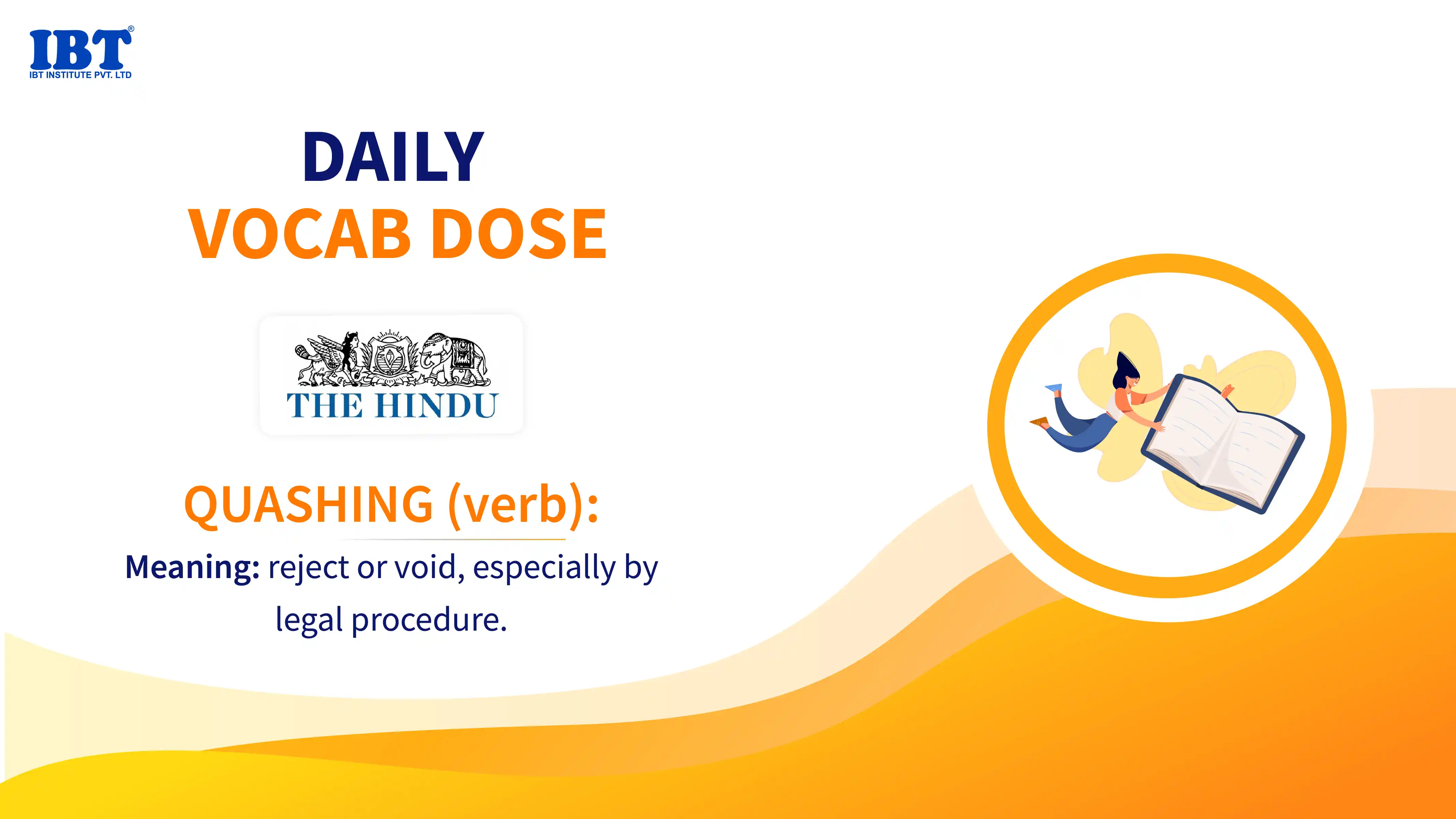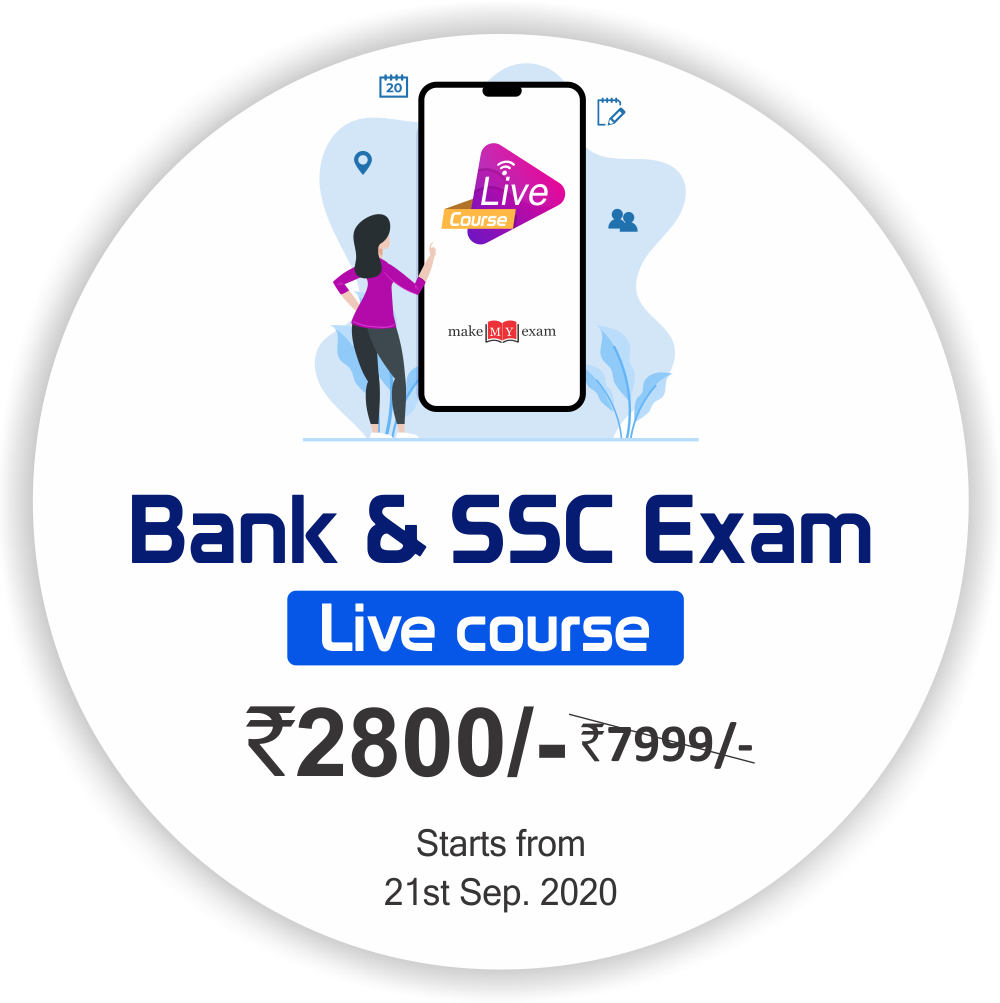Vocabulary - Exceptional English Words With Meanings : 22 September 2021

Exceptional words of English vocabulary from the newspaper ‘The Hindu’ are listed here. Go through these words and read the usages to learn how to use them in usages. After this, take the quiz based on the vocabulary to check how much you learnt. This will really help you boost up your learning.
Happy learning!!!
1.MORATORIUM (noun) – रोक
Pronunciation: maw·ruh·taw·ree·uhm
Meaning: a temporary prohibition of an activity.
Synonyms: stop, ban
Antonyms: continuance, continuation
Usage: The debt was to be subject to a five-year moratorium.
2. TRANSIENT (adj) – अनित्य
Pronunciation: tran·zee·uhnt
Meaning: lasting only for a short time.
Synonyms: momentary, adventitious, sliding
Antonyms: deathless, lasting, immortal
Usage: These exploits, however, were transient in their effects.
3. BELIE (verb) – झुठलाना
Pronunciation : buh·lai
Meaning: disguise or contradict.
Synonyms: explode, contradict, disprove
Antonyms: allow, approve, agree
Usage: Her energy and youthful good looks belie her 65 years.
4. QUASHING (verb) – रद्द करने
Pronunciation: kvawsh·uhng
Meaning: reject or void, especially by legal procedure.
Synonyms: cancel, revoke, disallow
Antonyms: help, allow, support
Usage: His conviction was quashed on appeal.
5. MOIETY (noun) – आधा भाग
Pronunciation: moy·uh·tee
Meaning: each of two parts into which a thing is or can be divided.
Synonyms: half, moiety, part
Antonyms: entirety, whole, full
Usage: The tax was to be delivered in two moieties.
6. ARDENT (adj) – उत्साही
Pronunciation: aa·dnt
Meaning: enthusiastic or passionate.
Synonyms: passionate, emotional, enthusiastic
Antonyms: emotionless, impassive, unpassionate
Usage: All her life she was an ardent feminist.
7. ENVISION (verb) – कल्पना करना
Pronunciation: uhn·vi·zhn
Meaning: visualize.
Synonyms: imagine, envision, speculate
Antonyms: neglect, look away, disregard
Usage: She envisioned the admiring glances of guests seeing her home.
8. VERNACULAR (noun) – मातृभाषा
Pronunciation: vuh·na·kyoo·luh
Meaning: the language or dialect spoken by ordinary people in a particular country or region.
Synonyms: formal, learned, literary
Antonyms: unbookish, unliterary, vulgar
Usage: Galileo wrote in the vernacular to reach a larger audience.
9. ARGOT (noun) – कठबोली
Pronunciation: aa·goh
Meaning: the jargon or slang of a particular group or class.
Synonyms: jargon, slang, idiom
Antonyms: silence, quiet
Usage: Pupils’ argot is of particular interest.
10. EXECRABLE (adj) – घिनौना
Pronunciation: ek·suh·kruh·bl
Meaning: extremely bad or unpleasant.
Synonyms: horrible, terrible, disgusting
Antonyms: bitchin, marvelous, wonderful
usage: Living conditions in the slums were execrable.
Now choose any 2 or 3 words, try to use them in your own usages and share your usages in the comment section. This will help you to retain the learnt words for a longer duration.
2 likes |
0 comment
 4.5/5
4.5/5








